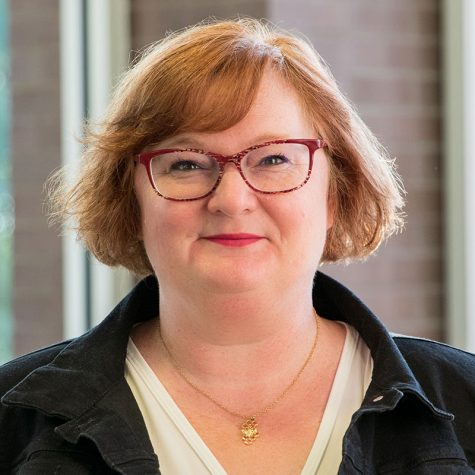Being “First Gen” can mean challenges
February 24, 2021
I was the first person in my family to go to college. If you’re reading this on our campus, there’s a 50/50 chance you’re the first one in your family too. We’re “first-generation college students” and there is a whole field of academic research dedicated to figuring out what college is like for us. I went to school a long time before you did, and people started studying first gen students a long time before I ever went to school, so there are whole decades of information. And the funny thing is, not much has changed. First gen students in the 70’s and 90’s and now have a lot of the same pressures and challenges.
The basic challenges, like money and motivation and a lack of basic institutional knowledge… Those challenges are real and make it hard for people to finish. First gen kids usually work more hours outside of school than continuing gen students. They tend to have more responsibilities to their families, like babysitting and car-sharing. It’s funny, though. If you grew up without much money, you’re just, like, used to it? Rubbing two dimes together to make a quarter is just how you’re used to living? Spending time driving everyone to work and school, and sharing the resources, and having everyday chores take more time and money is just how it is. So those challenges are hard, and they can be devastating, but they are the challenges one would expect to see.
Some of the other challenges aren’t so obvious, and they are the ones that can rob a first gen student of their motivation to keep going. The external hurdles are hard enough to jump, but the hidden hurdles are the ones that change who you are as a person, sometimes even whether or not you clear them.
There’s a kind of isolation that can come from being a first gen student. On the one hand, you don’t feel like you fit in with people whose parents went to college because they just know so much more about how college works. If they need to know what “syllabus” or “office hours” meant, they have someone to ask. And they usually feel more confident asking when they don’t know something because they aren’t afraid the question will be used to confirm their fear, which is that they don’t actually belong here. On the other hand, though, the more you learn in school, the less you can feel like you fit into your old life. Your family might ask what you’re doing in school and it’s hard to even know where to begin explaining. It’s like a meme that is several generations deep except the meme is your life and the meme isn’t funny.
Along with the isolation is often the guilt. Guilt about the money. Guilt that you get to have an opportunity that someone else in your family never got. Guilt that you feel impatient with the family that won’t get the meme. And the changes that can come in college can lead to even bigger, deeper wells of guilt. We grow up believing the same stuff our parents believe, but then in college we learn other people believe all kinds of other stuff. And sometimes some of that other stuff makes more sense to us than the stuff our parents taught us. So now you get to feel guilty that you don’t agree with your parents anymore and, if you’re really doing a 180, you can also feel guilty about what you believe because you were always told it was wrong. Double jackpot! Just ask any queer kid who both resents their family for rejecting them and struggles with hating themselves because they were told queer people are wrong. And kids who realize they’re atheists? That’s a spiral of isolation and guilt that can derail a whole semester. And, ask anyone, but isolation and guilt are best friends and rarely go anywhere without each other for company.
There’s a pretty simple solution to both of them, though, and you’re gonna be, like, really Melanie? I stuck with these all this time just so you could spout some lame garbage like this? And I’m gonna be, like, heck yeah, because it’s actually not garbage. I promise you it’s true.
The solution is to talk about who you are. Be honest and brave to share even one detail that you think makes you alone or unworthy, and I guarantee – GUARANTEE – there are people you know who are going through the exact same thing. And if the person next to you isn’t having the same problem, your admission that everything isn’t perfect will give them permission to exhale and admit that everything isn’t perfect with them either. It’s about being your authentic self. Whatever it is that you are afraid to talk about, other people probably won’t think it’s anything to be afraid of. Our faults always seem bigger to ourselves than they do to other people. (And if you find someone who enjoys finding faults in other people? Keep it moving and find better friends because who needs that in their lives?)







